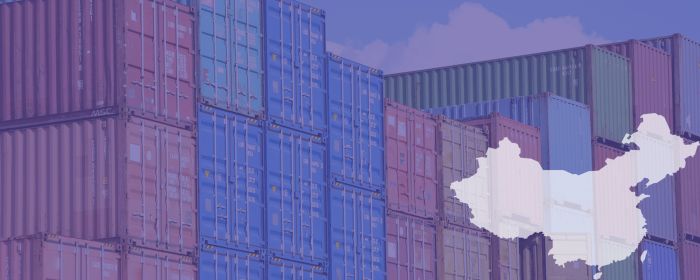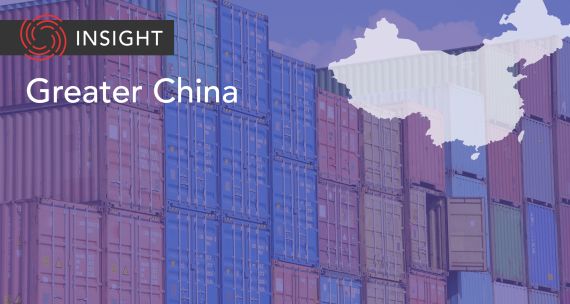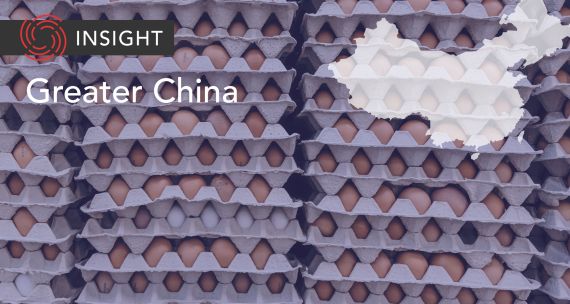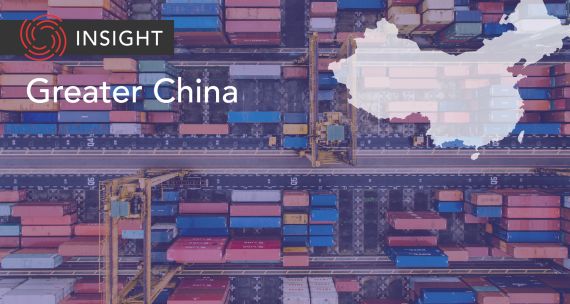The Takeaway
Signs of warmer trade and travel relations across the Taiwan Strait have emerged this month, with previously banned food imports from Taiwan being given China’s nod to ship again, and resumed flight and ferry routes allowing people, or even officials, to make first cross-strait trips in more than three years. With Taiwan’s next presidential election on the horizon, public opinion strongly divided over China’s role in Taiwan’s future, and Beijing’s ramped-up campaign to keep the island in its orbit, tension-easing efforts remain complicated.
In Brief
China’s Taiwan Affairs Office (TAO) announced on March 15 that it will resume importing chilled and frozen cutlassfish and mackerel from Taiwan. Imposed in August 2022 on the grounds of having detected coronavirus in these frozen fish products, hairtail (a type of cutlassfish) and mackerel were among the first in a wave of Taiwanese food and drink products subjected to Chinese import bans.
The frozen fish reprieve follows on the heels of a January 2023 decision by the TAO to once again permit imports from 63 Taiwanese food and drink producers, including Kinmen Kaoliang Liquor, which had its export licences suspended over ‘paperwork’ issues. TAO spokesperson Ma Xiaoguang told reporters that “the island’s companies have submitted relevant documentations” and that his office was informed of the bureaucratic issue by “concerned individuals,” referring to a Kuomintang (KMT) delegation from Taiwan that visited Xiamen, Fujian, in January.
Implications
While lifting import bans may be seen as an initial step by Beijing to soothe business relations with Taipei, people-to-people exchanges have also begun to see some normalization, with COVID-19 travel restrictions removed and borders reopened across the strait. Meanwhile, commercial flights between Taiwan and 10 mainland Chinese cities are again flying Taiwanese businesspeople between key markets. And the ‘Mini Three Links’ — direct trade, transport, and postal services connecting Taiwan’s Kinmen County and Matsu Islands with neighbouring Fujian — has been partially restored, with full resumption expected in April.
KMT Legislator Jessica Chen Yu-jen, Kinmen County representative and an active advocate for rebuilding trade and transportation ties with Beijing, was among several Taiwanese politicians from the island’s main opposition party who have visited China since December 2022. KMT former party chair Hung Hsiu-chu and incumbent vice-chair Andrew Hsia both led delegations to the Chinese mainland. Former president Ma Ying-jeou announced on March 20 his planned historic visit to China — a first for a former president in the 74 years since the KMT’s retreat to Taiwan.
Although Ma’s spokesman said his March 27-to-April 7 trip will primarily be a private affair, Ma’s role as the island’s former top leader, whose administration oversaw a peak time in Beijing-Taipei ties, will inevitably add symbolic and political weight to his party’s ongoing efforts to mend much-deteriorated cross-strait relations. The trip also happens at a geopolitically sensitive time. It overlaps with current president and Democratic Progressive Party (DPP) member Tsai Ing-Wen's stopovers in New York and Los Angeles on her way to visit Taiwan’s allies in Central America, and comes right after Chinese president Xi Jinping’s state visit to Russia.
DPP members reacted strongly to former president Ma’s proposed trip, criticizing his decision as “sending the wrong signal” and “disrespecting the best interest of the nation and the public” since many in Taiwan remain wary of an increasingly assertive China. As inter-party competition ramps up between the pro-China KMT and the pro-independence DPP approaching Taiwan’s next presidential election in January 2024, it remains unlikely that Ma’s trip will directly influence the election outcome, nor tip the scales in Taipei’s relationship with Beijing and Washington.
What’s Next
- Taiwanese reactions mixed on Ma’s mainland trip
While Ma’s words and deeds during his trip will be scrutinized by those in the DPP-dominant Pan-Green Coalition, Taiwan’s largest pro-Beijing media outlet, China Times, cited an online poll result that “77 per cent” of nearly 25,000 ‘netizens’ who voted in the poll “look favourably on [Ma’s trip].” Whether or not an exaggeration by either camp, Ma will likely be cautious in avoiding a voter backlash similar to the one his party experienced during the 2014 Sunflower Movement against Ma’s proposed cross-strait trade pacts.
- Beijing playing the emotional card
Emphasizing shared roots and common kinship among the peoples of Greater China has always been central to the Chinese Communist Party’s ‘united front’ tactic towards Taiwan. Critics call Ma’s trip, set around the annual Tomb Sweeping Day honoured on both sides, as playing to this tactic. Meanwhile, the just-aired mainland Chinese music show ‘Infinity and Beyond – Formosa Season’ and its rare highlight of Taiwan’s Indigenous culture seems to suggest Beijing is also willing to play the ‘emotional card’ when it comes to Taiwan.
- Taiwan’s major political parties gearing up for upcoming election
Taiwan’s next presidential election will be a crucial one for the island. While local election results in November 2022 gave the KMT a confidence boost, recent opinion polls show that most voters today associate themselves with a solely Taiwanese identity. This may be a disadvantage to the KMT — which is seen as the relatively more pro-unification party — and will be weighed in the party’s still-pending choice of a presidential candidate.
• Produced by CAST's Greater China team: Maya Liu (Program Manager); Liam Lau (Analyst); and Irene Zhang (Analyst).




